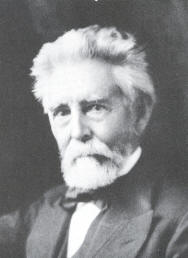Norman Jay Coleman
| Norman J. Colman | |
|---|---|
 |
|
| 1st United States Secretary of Agriculture | |
|
In office February 15, 1889 – March 6, 1889 |
|
| President |
Grover Cleveland Benjamin Harrison |
| Preceded by | Position Established |
| Succeeded by | Jeremiah M. Rusk |
| 17th Lieutenant Governor of Missouri | |
|
In office January 12, 1875 – January 8, 1877 |
|
| Governor | Charles Henry Hardin |
| Preceded by | Charles Phillip |
| Succeeded by | Henry Clay Brockmeyer |
| Member of the Missouri House of Representatives | |
| Personal details | |
| Born |
Norman Jay Colman May 16, 1827 Richfield Springs, New York, U.S. |
| Died | November 3, 1911 (aged 84) St. Louis, Missouri, U.S. |
| Resting place | Bellefontaine Cemetery, St. Louis, Missouri |
| Political party | Democratic |
| Spouse(s) | Clara Porter Colman Catherine Wright Colman |
| Alma mater | University of Louisville |
| Profession | Politician, Publisher |
Norman Jay Colman (May 16, 1827 – November 3, 1911) was a politician, newspaper publisher, and, for 18 days, the first United States Secretary of Agriculture.
Colman was born in Richfield Springs, New York, to son of Nancy (Sprague) and Hamilton Colman. He later moved to Kentucky to become an educator. He received a law degree from the University of Louisville Law School in 1849. Colman then moved to Missouri, ostensibly to farm. He was elected as an Alderman for St. Louis city's 5th ward as a Whig in 1854 and 1855 In 1855 he founded the Valley Farmer newspaper. As a result of his publication, Colman became a prominent figure in Missouri farming circles, which set the path for a political career in the Missouri House of Representatives. The publication of Colman's newspaper was interrupted by the American Civil War, but three years after the war he founded the Colman's Rural World. His political career continued, culminating with his election as the 17th Lieutenant Governor of Missouri from 1875 to 1877, as Democrat.
President Grover Cleveland appointed Coleman Commissioner of Agriculture in 1885. During his tenure he led a coalition of land-grant agricultural colleges in writing proposed legislation for the creation of agricultural experiment stations. Their lobbying efforts helped produce the Hatch Act in 1887.
...
Wikipedia
